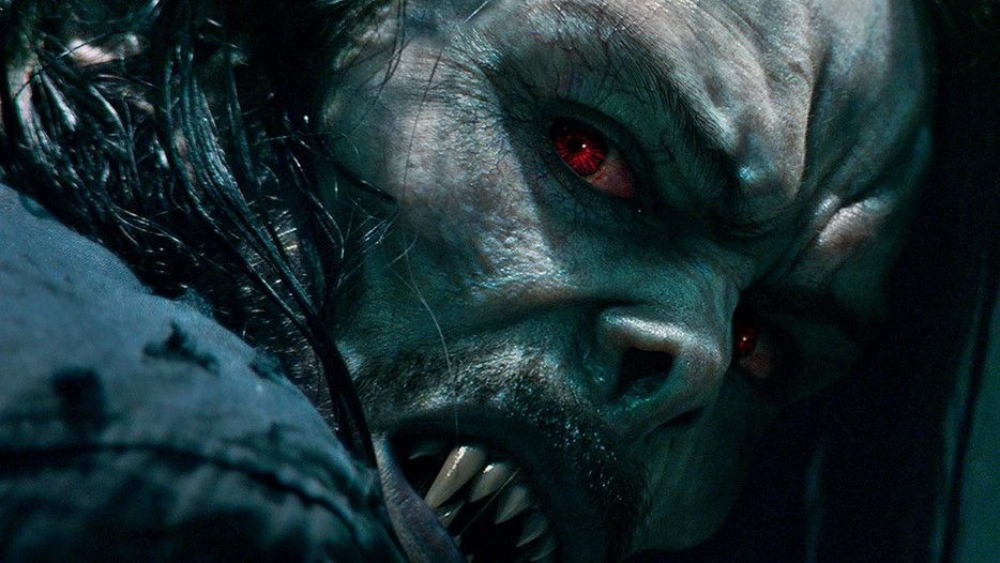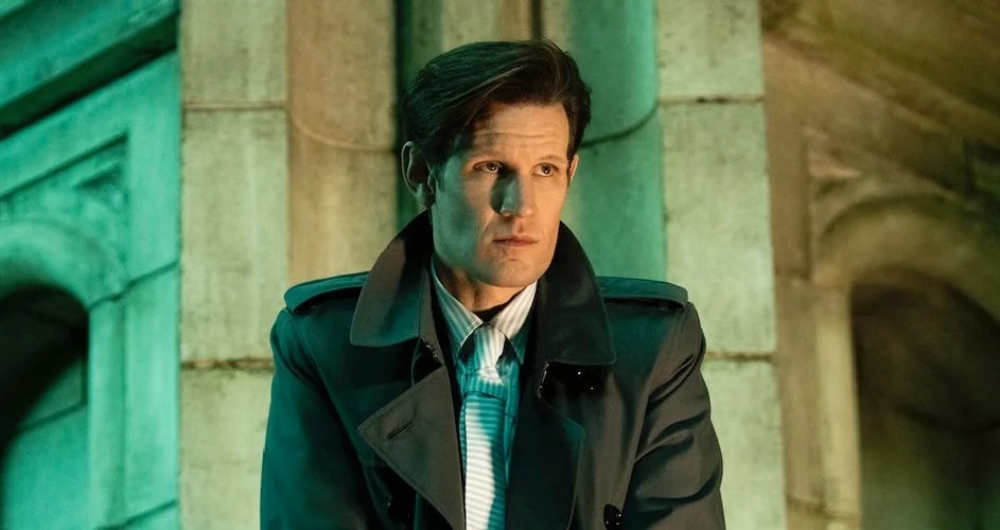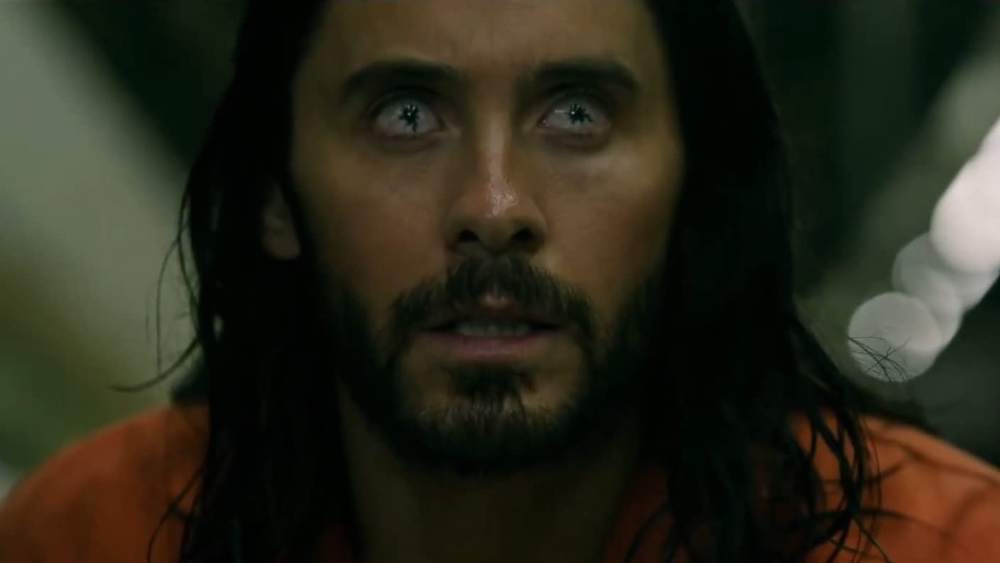
You may recall that just a few weeks ago, I wrote roughly 1600 words extolling the virtues of The Batman. Well, on Monday, I sat through another comic book movie, this one being Morbius.
Rest assured, this week’s column will not be extolling anything about that film.
Watching Morbius actually made me angry. It’s not just that the movie was bad, it’s that it was cynical, pandering to the lowest common denominator without paying any attention to story, character development, or internal logic. It was the worst of those bad ’90s-era superhero movies that essentially ghettoized the genre until X-Men came along in 2000, two years before Spider-Man broke box office records. Even then, there was plenty of garbage — who could forget Daredevil, Elektra, or Catwoman — and things didn’t really change for good until 2008, first with Iron Man, and then with The Dark Knight. But watching Morbius, it was as though neither of those movies had ever happened — a throwback to a time best forgotten by fans of comic book movies.
Sony has owned the Spider-Man franchise and all of its related characters for decades, and for the most part, the company has done pretty well with it. Five of the eight movies featuring Ol’ Web Head have been either really good or downright great, and even the three clunkers have their redeeming features. While I didn’t care for Venom, I found the Andy Serkis-directed sequel, Venom: Let There Be Carnage, to be fairly hilarious, even if it wasn’t a terribly good film. It was certainly entertaining if nothing else.
But if Morbius is the future of what Sony has in mind for the Spiderverse, then good lord, count me out. The quality of these three Spidey spinoffs is so far below Tom Holland‘s trilogy, it’s like they were made by two different studios.
Oh, wait… they kind of were.
Holland’s Peter Parker pictures were co-produced by Marvel Entertainment, while the two Venom films and this new Morbius monstrosity were produced by Sony’s Columbia Pictures in association with Marvel, which is a pretty important distinction, as one gets you Kevin Feige‘s hands-on involvement and the other does not. And rather than follow Marvel’s successful model in which each movie strives to be interesting and engaging, as well as have its own logic and empathetic characters, Sony is instead content to fall back on the same old tired cliches and tropes that made the superhero movies of yore so unpleasant and forgettable. There is simply nothing in Morbius that ever leads the audience to care even remotely about the main character, while the villain is a cardboard cutout who hasn’t the slightest whiff of mystery about him and the female protagonist is window dressing. Elsewhere, two promising supporting characters are utterly wasted, and the story itself becomes so predictable, anyone with the slightest bit of movie savvy can call out each “twist” long before they happen.

I understand that making a good movie is very hard, and making a bad movie isn’t much easier, but when you have an in-house model as to how to do it well, why on Earth are you not then trying to replicate said model on the related projects you create? It’s insulting to the audience because you’re essentially saying that this other way of doing things isn’t important, nor is the time they’re spending in the theater.
Rather than spend $150 million like Marvel and DC regularly do, Sony has embraced a more cost-effective model, as Venom cost roughly $90 million, while Morbius cost just $75 million. Why would Sony spend twice as much if you’re still going to show up no matter what so long as the movie is related to Spider-Man in some tangential way, regardless of whether or not it’s any good? If that’s the case, why even hire top directors when you can settle for midlevel studio movie vets like Ruben Fleischer (Venom) or Daniel Espinosa (Morbius)? The problem is that audiences are rewarding this lazy creative philosophy by doing their part and showing up as if they have to accept every invitation they receive from Marvel and its associates.
Oh, Morbius isn’t going to be a monster hit anywhere close to the success of Spider-Man: No Way Home or The Batman, but at the end of the day, it’s going to make money. The film certainly isn’t the flop it deserves to be, and because of that, the message that audiences are sending to Sony chief Tom Rothman is that it’s okay to keep doing this. After all, there’s no reason for him to stop, as quality is in the eye of the beholder, so as long as there’s two-and-a-half minutes worth of footage for Sony to cut into a decent trailer, what does he care?
I can just picture Rothman in his Culver City office asking why Sony should pay for a third hour (i.e. The Batman, Avengers: Endgame) of VFX-heavy superhero action when the ticket price is roughly the same for shorter tentpoles like Venom: Let There Be Carnage (97 minutes) and, yes, Morbius (104 minutes)? With a modest budget of just $75 million, Morbius has a relatively low threshold for success, so while I have a fair amount of respect for Rothman and admire his business acumen, I loathe his attitude here, because of its abject contemptuousness.

Meanwhile, there’s another Spider-Man spinoff on the way to us next year in the form of Kraven the Hunter, who for the uninitiated, is another Spidey foe from the Marvel comics. Aaron Taylor-Johnson will star alongside Russell Crowe, Christopher Abbott, Alessandro Nivola, and recent Oscar winner Ariana DeBose, and that cast, combined with the fact that the film will be directed by J.C. Chandor, whose work I generally admire, gave me hope that it would be a Spidey spinoff worth my time. After seeing Morbius, however, my confidence has been badly shaken.
Of course, folks like me can complain all they want about how bad studio movies have become, and how little respect is paid to audiences, but unless and until we no longer take the bait and just decide to let the bad stuff go by without feeling the need to see it on the big screen, it’s going to keep coming — an endless plague of mediocrity, like waves crashing on a rocky beach.
Seeing that Morbius‘ Audience Score on Rotten Tomatoes is actually 70 percent (versus 16 percent from critics) doesn’t fill me with the hope that we can actually force Sony to clean up its act regarding these soulless Spider-Man spinoffs. On the contrary, it tells me that too many of us not only don’t mind having our intelligence insulted, we actually welcome it. If no one had shown up for this movie, Sony might have learned a valuable lesson that, with or without Marvel, the studio needs to put the same level of care into these spinoffs as it does the real Spider-Man movies. Instead, we tell Sony to keep it coming, and we’ll be fine. More than that, we’ll be happy. For our morbid curiosity will be sated, at least until the next comic book movie comes along that critics abhor but we simply have to see for ourselves.
Maybe it has something to do with escapism in difficult times. I can sort of see that, but the problem is that even escapism requires quality control, especially if these studios want us to leave the comfort of our couches to sit in a big dark room with a bunch of strangers. We’ve lost that quality control to some extent over the last couple of years, and if the studios really want people to come back to theaters in the same numbers they were before the pandemic, they have to stop making lazy tentpoles like Morbius and get back to bringing their A-game. Because when audiences start losing faith in the comic book movies that have been keeping the theatrical business afloat through the pandemic, it will indeed be the “endgame” for movie theaters.
 Neil Turitz is a journalist, essayist, author, and filmmaker who has worked in and written about Hollywood for nearly 25 years, though he has never lived there. These days, he splits his time between New York City and the Berkshires. He’s not on Twitter, but you can find him on Instagram @6wordreviews.
Neil Turitz is a journalist, essayist, author, and filmmaker who has worked in and written about Hollywood for nearly 25 years, though he has never lived there. These days, he splits his time between New York City and the Berkshires. He’s not on Twitter, but you can find him on Instagram @6wordreviews.
You can read a new installation of The Accidental Turitz every Wednesday, and all previous columns can be found here.





